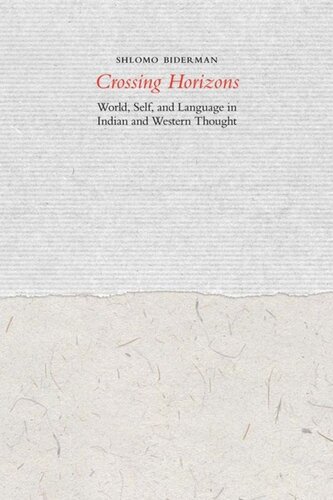

Most ebook files are in PDF format, so you can easily read them using various software such as Foxit Reader or directly on the Google Chrome browser.
Some ebook files are released by publishers in other formats such as .awz, .mobi, .epub, .fb2, etc. You may need to install specific software to read these formats on mobile/PC, such as Calibre.
Please read the tutorial at this link: https://ebookbell.com/faq
We offer FREE conversion to the popular formats you request; however, this may take some time. Therefore, right after payment, please email us, and we will try to provide the service as quickly as possible.
For some exceptional file formats or broken links (if any), please refrain from opening any disputes. Instead, email us first, and we will try to assist within a maximum of 6 hours.
EbookBell Team

0.0
0 reviewsIn this book, Shlomo Biderman examines the views, outlooks, and attitudes of two distinct cultures: the West and classical India. He turns to a rich and varied collection of primary sources: the Rg Veda, the Upanishads, and texts by the Buddhist philosophers Någårjuna and Vasubandhu, among others. In studying the West, Biderman considers the Bible and its commentaries, the writings of such philosophers as Plato, Descartes, Berkeley, Kant, and Derrida, and the literature of Kafka, Melville, and Orwell. Additional sources are Mozart's Don Giovanni and seminal films like Ingmar Bergman's Persona.
Biderman uses concrete examples from religion and literature to illustrate the formal aspects of the philosophical problems of transcendence, language, selfhood, and the external world and then demonstrates their plausibility in actual situations. Though his method of analysis is comparative, Biderman does not adopt the disinterested stance of an "ideal" spectator. Rather, Biderman approaches ancient Indian thought and culture from a Western philosophical standpoint to uncover cultural presuppositions that can be difficult to expose from within the culture in question.
The result is a fascinating landmark in the study of Indian and Western thought. Through his comparative prism, Biderman explores the most basic ideas underlying human culture, and his investigation not only sheds light on India's philosophical traditions but also facilitates a deeper understanding of our own.